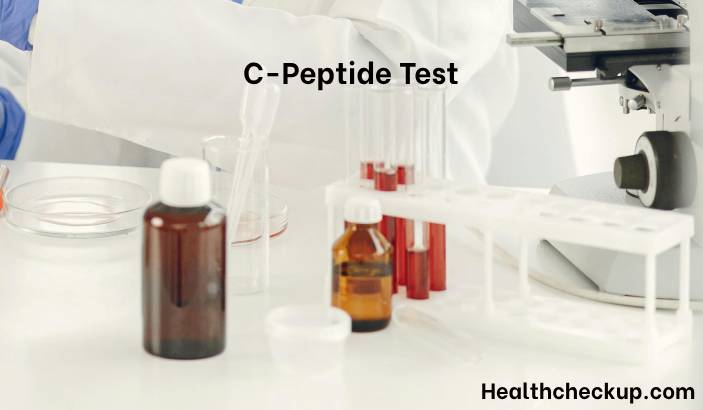The C-peptide test is used to measure the level of C-peptide in the blood. This test is often employed to evaluate insulin production and to diagnose or manage diabetes and related conditions.
Purpose of the C-Peptide Test
- Assessing Insulin Production: The primary purpose of the C-peptide test is to measure how much insulin the pancreas is producing. It helps differentiate between type 1 and type 2 diabetes.
- Monitoring Diabetes Management: The test can be used to monitor how well a person with diabetes is managing their condition, providing insights into insulin levels over time.
- Diagnosing Insulinoma: C-peptide levels can help identify insulinomas, rare tumors in the pancreas that produce excess insulin.
- Evaluating Hypoglycemia: The test is useful in assessing unexplained low blood sugar levels, helping determine if they are related to insulin overproduction.
Preparation for the C-Peptide Test</p
- Fasting: Generally, fasting for 8 to 12 hours before the test is required to obtain accurate results. It is crucial to follow your healthcare provider’s specific instructions regarding food and drink.
- Medication Adjustment: Certain medications can affect insulin production or C-peptide levels. Inform your healthcare provider about all medications and supplements you’re taking to ensure accurate test results.
- Avoiding Stress: Since stress can affect insulin levels, try to minimize stress before the test.
- Medical History Review: A thorough review of medical history, including any known conditions related to diabetes or insulin production, is necessary.
Procedure of the C-Peptide Test
- Blood Sample Collection: The test involves drawing a blood sample, usually from a vein in the arm. The procedure is straightforward and typically takes only a few minutes.
- Laboratory Analysis: The collected sample is sent to a laboratory where the C-peptide levels are measured using specialized techniques.
Normal Range for C-Peptide Test
- Typical Values: Normal C-peptide levels in fasting adults generally range from 0.5 to 2.0 nanograms per milliliter (ng/mL). This range can vary depending on the laboratory and the individual’s age, gender, and health condition.
- After Meals: Levels may increase after eating, so interpretation should consider the test’s timing.
Interpreting C-Peptide Test Results
- High C-Peptide Levels: Elevated levels can indicate excessive insulin production, potentially caused by insulinoma, type 2 diabetes, or obesity.
- Low C-Peptide Levels: Low levels suggest reduced insulin production, which is often associated with type 1 diabetes or extensive pancreatic damage.
- Guiding Diabetes Management: Results can help healthcare providers determine the best treatment strategy for diabetes, including insulin therapy or other medications.
- Further Testing: Abnormal results may require additional tests to confirm the underlying condition or to guide treatment decisions.
The C-peptide test is a diagnostic tool for assessing insulin production and understanding various conditions related to diabetes. It is crucial in differentiating between types of diabetes, diagnosing insulinomas, and monitoring diabetes management. Discussing test results with healthcare providers is key to interpreting them accurately and making informed decisions about treatment and diabetes management.
I specialize in writing about health, medical conditions, and healthcare, drawing extensively from scientific research. Over the course of my career, I have published widely on topics related to health, medicine, and education. My work has appeared in leading blogs and editorial columns.









